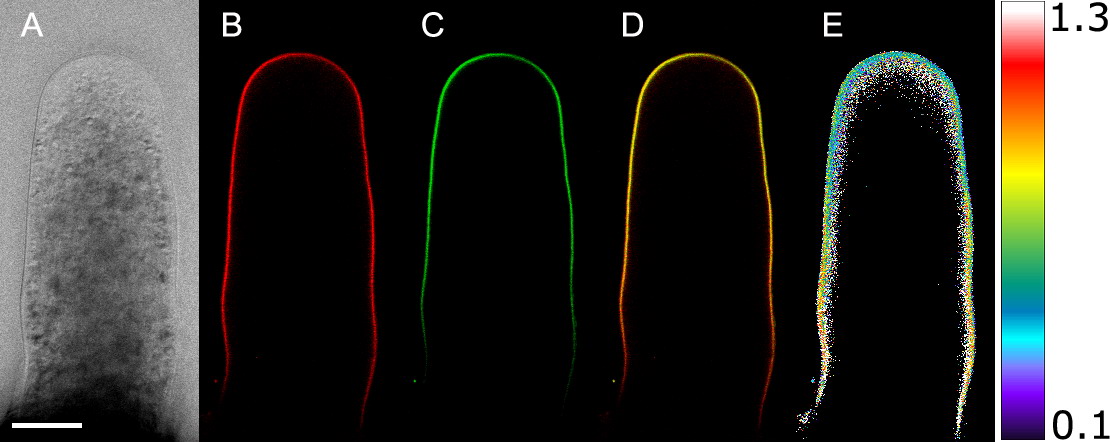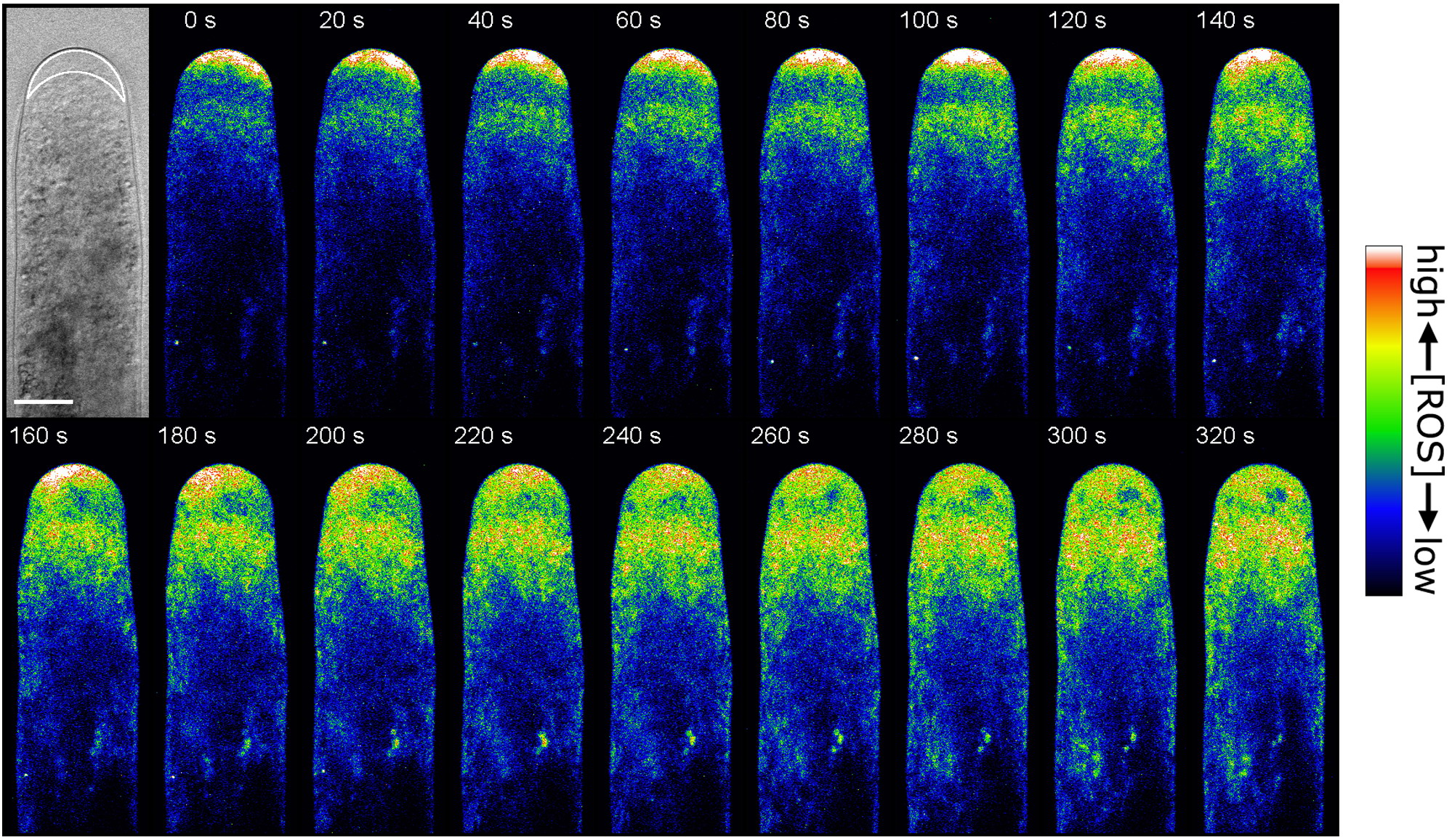Lipid microdomain polarization is required for NADPH oxidase-dependent ROS signaling in Picea meyeri pollen tube tip growth
Liu P, Li RL, Zhang L, Wang QL, Niehaus K, Baluška F, Šamaj J,Lin JX
Plant Journal
DOI:10.1111/j.1365-313X.2009.03955.x
JCR Impact factor: 6.493
Abstract:
The polarization of sterol-enriched lipid microdomains has been linked to morphogenesis and cell movement in diverse cell types. Recent biochemical evidence has confirmed the presence of lipid microdomains in plant cells; however, direct evidence for a functional link between these microdomains and plant cell growth is still lacking. Here, we reported the involvement of lipid microdomains in NADPH oxidase (NOX)-dependent reactive oxygen species (ROS) signaling in Picea meyeri pollen tube growth. Staining with di-4-ANEPPDHQ or filipin revealed that sterol-enriched microdomains were polarized to the growing tip of the pollen tube. Sterol sequestration with filipin disrupted membrane microdomain polarization, depressed tip-based ROS formation, dissipated tip-focused cytosolic Ca2+ gradient and thereby arrested tip growth. NOX clustered at the growing tip, and corresponded to the ordered membrane domains. Immunoblot analysis and native gel assays demonstrated that NOX was partially associated with detergent-resistant membranes and, further, that NOX in a sterol-dependent fashion depends on membrane microdomains for its enzymatic activity. In addition, in vivo time-lapse imaging revealed the coexistence of a steep tip-high apical ROS gradient and a subapical ROS production, highlighting the reported signaling role for ROS in polar cell growth. Our results suggest that the polarization of lipid microdomains to the apical plasma membrane and the inclusion of NOX into these domains contribute, at least in part, to the ability to grow in a highly polarized manner to form pollen tubes.


